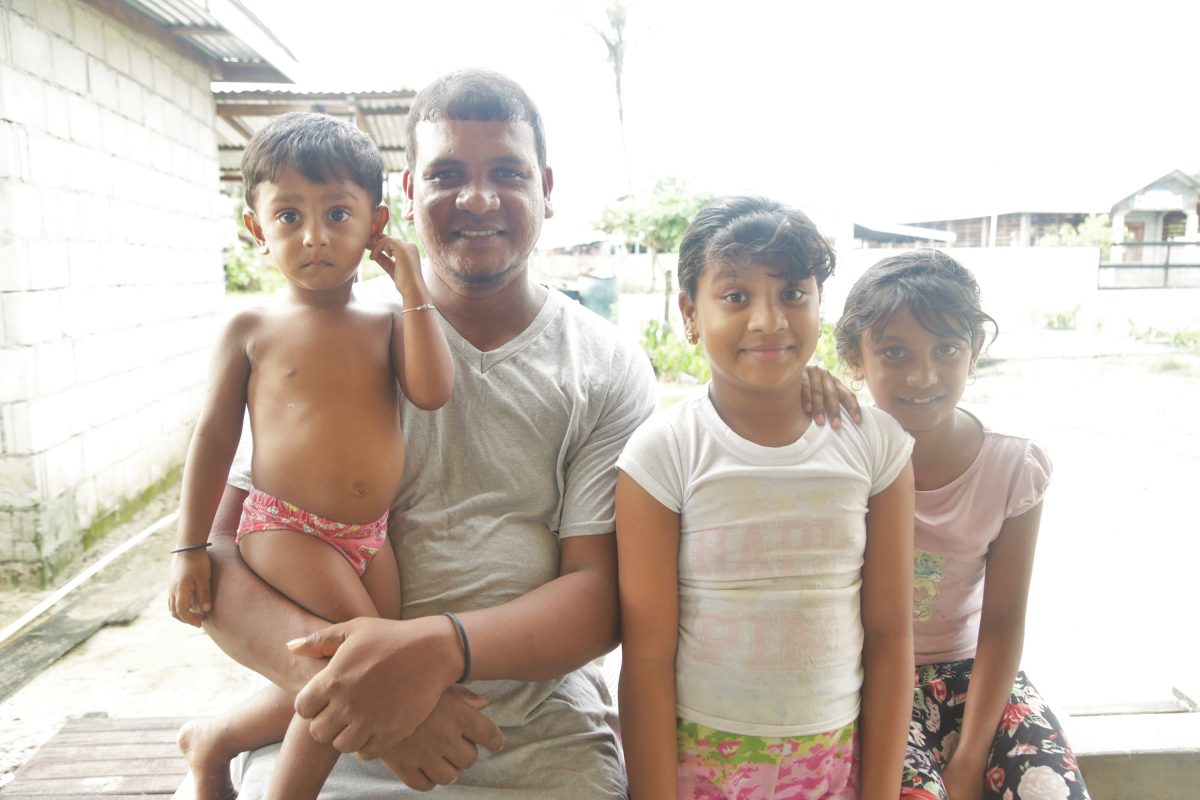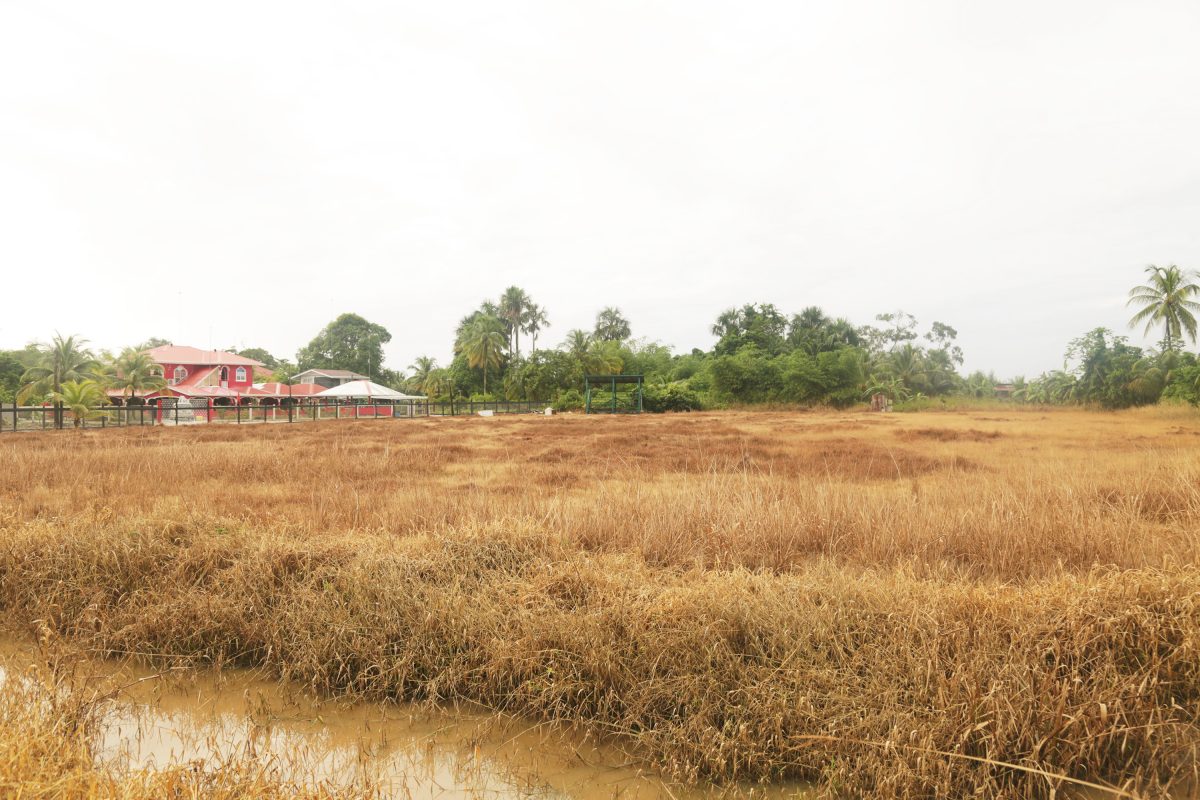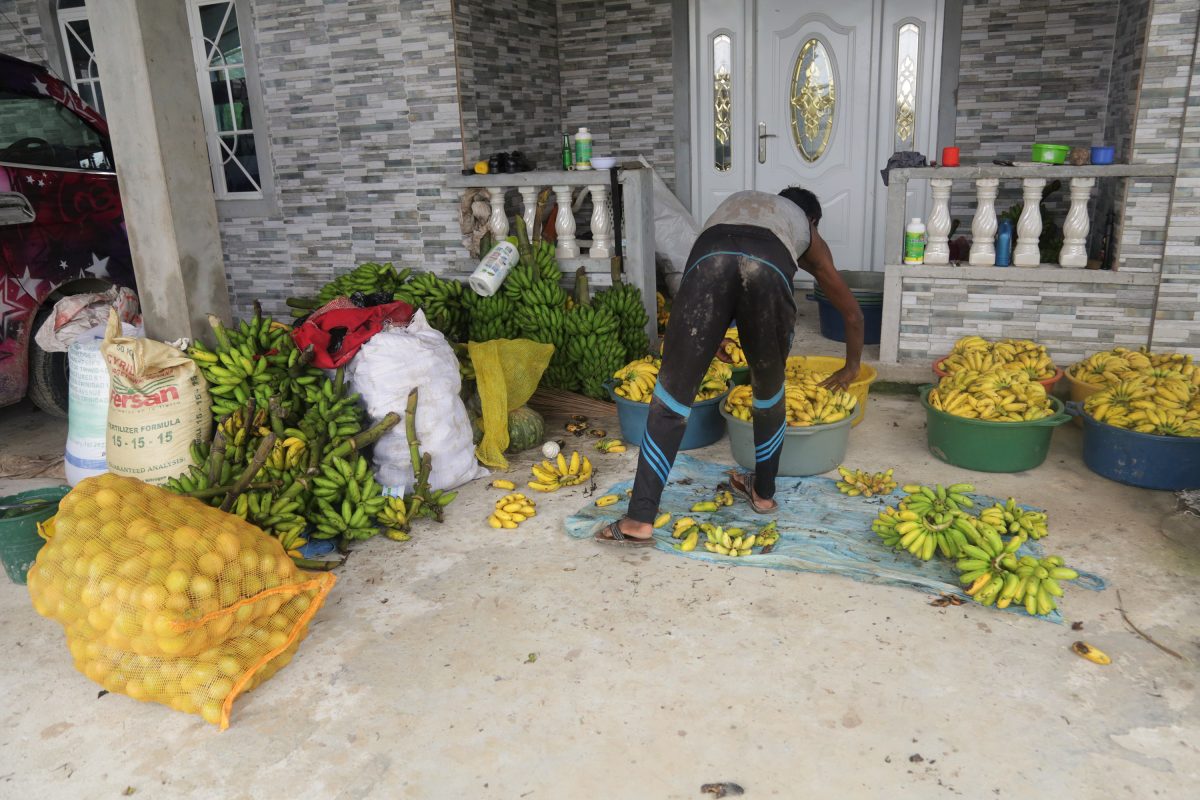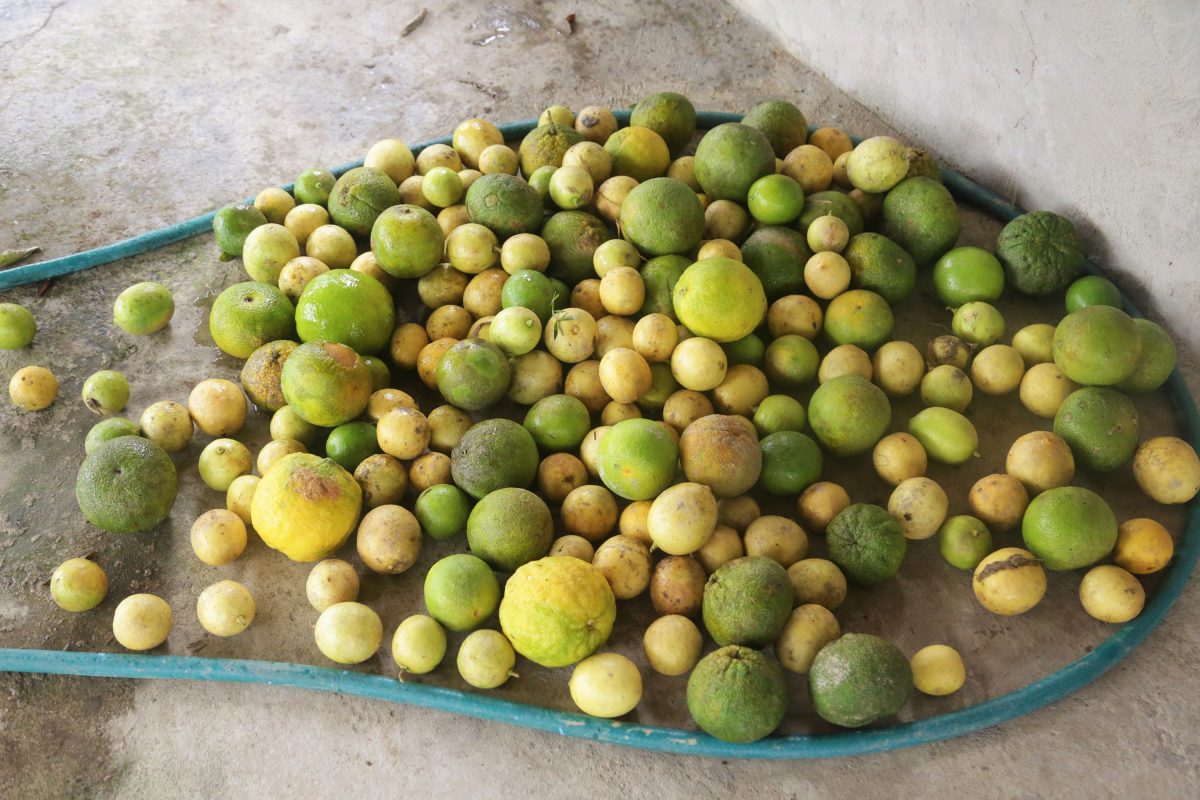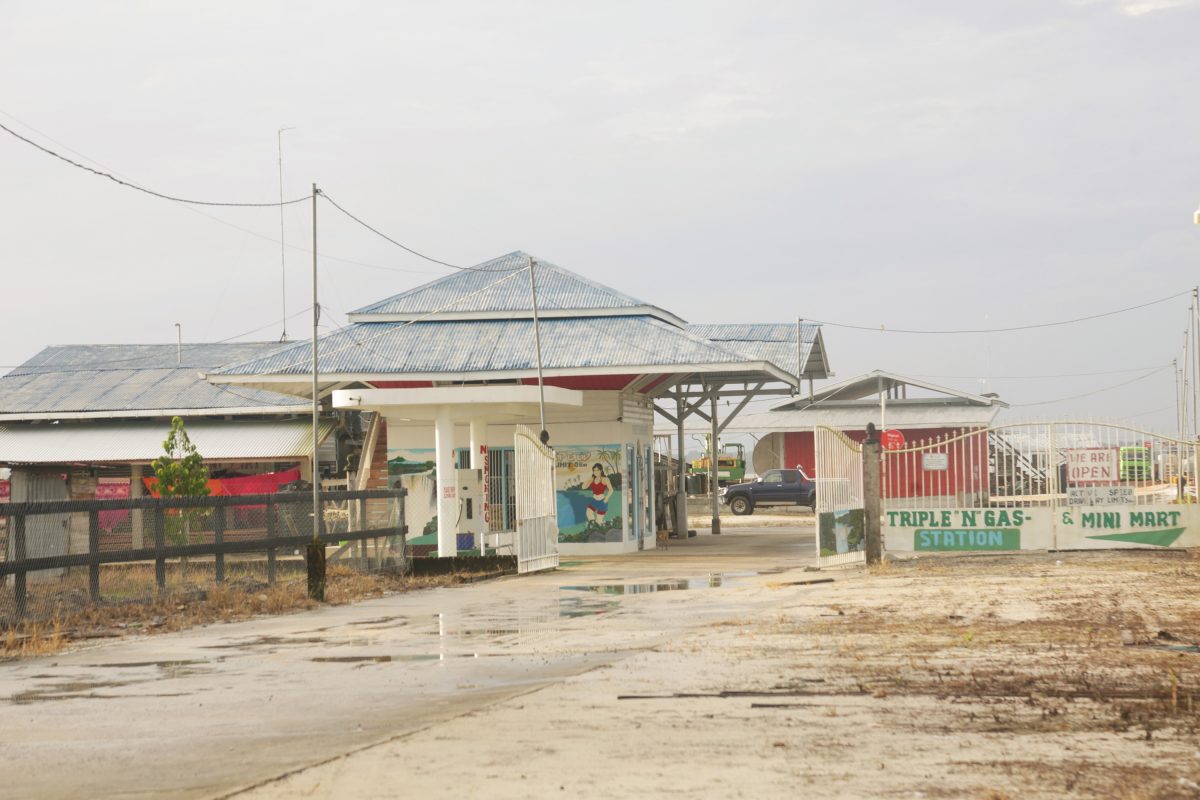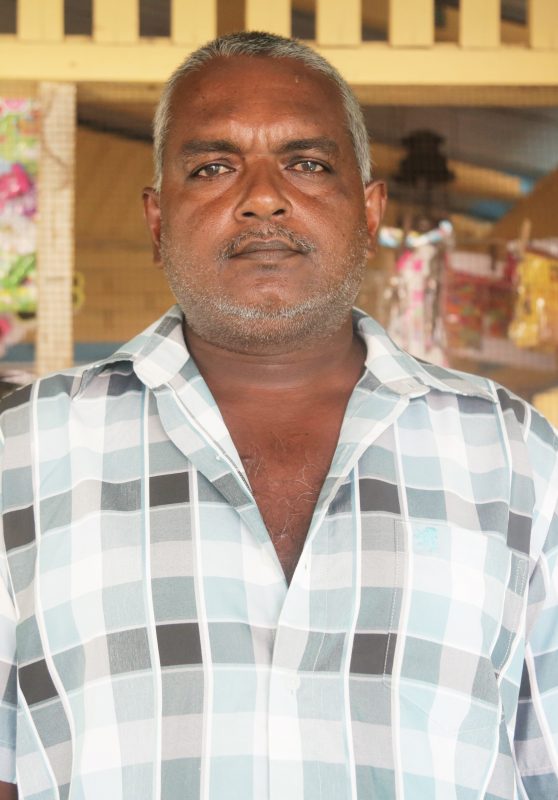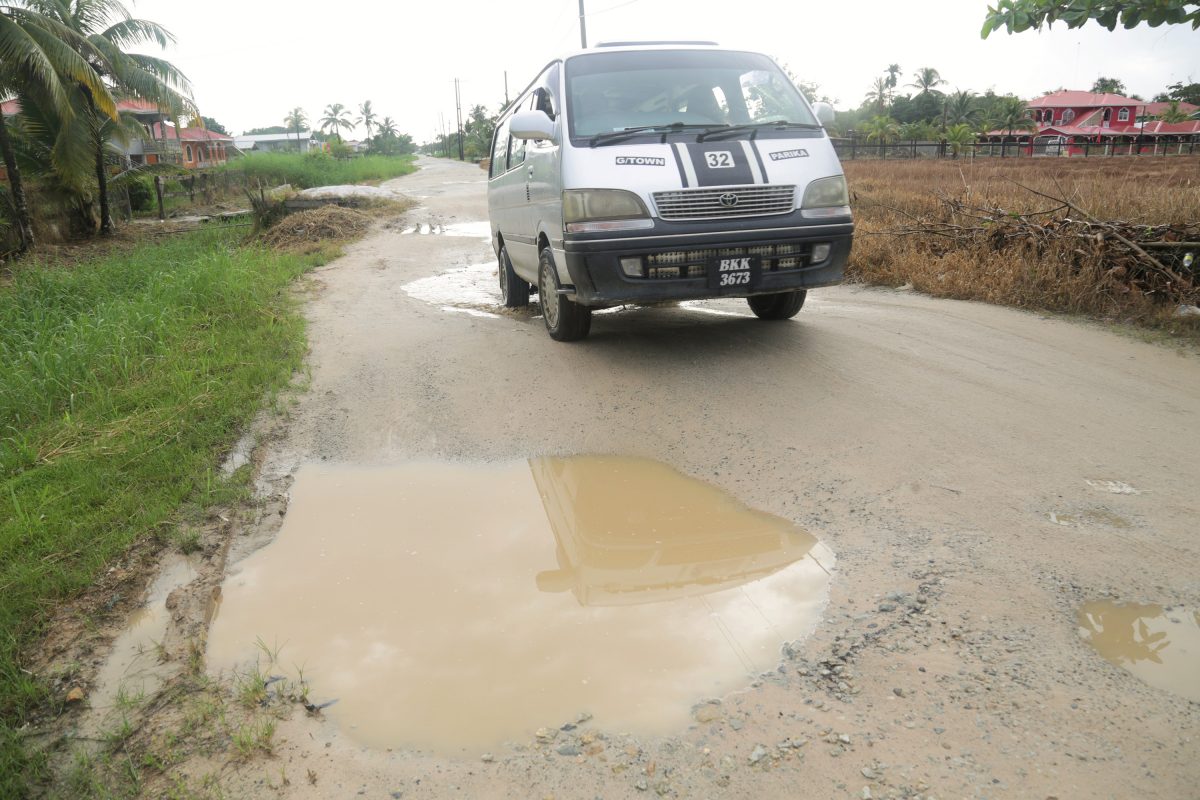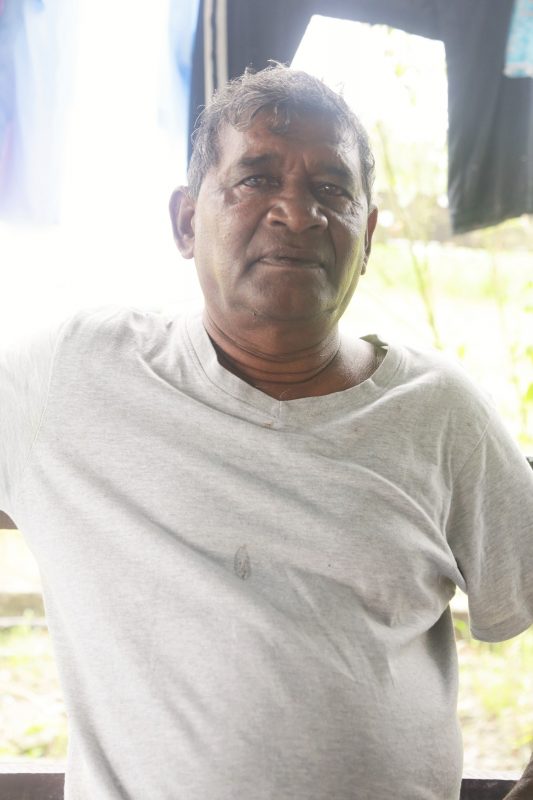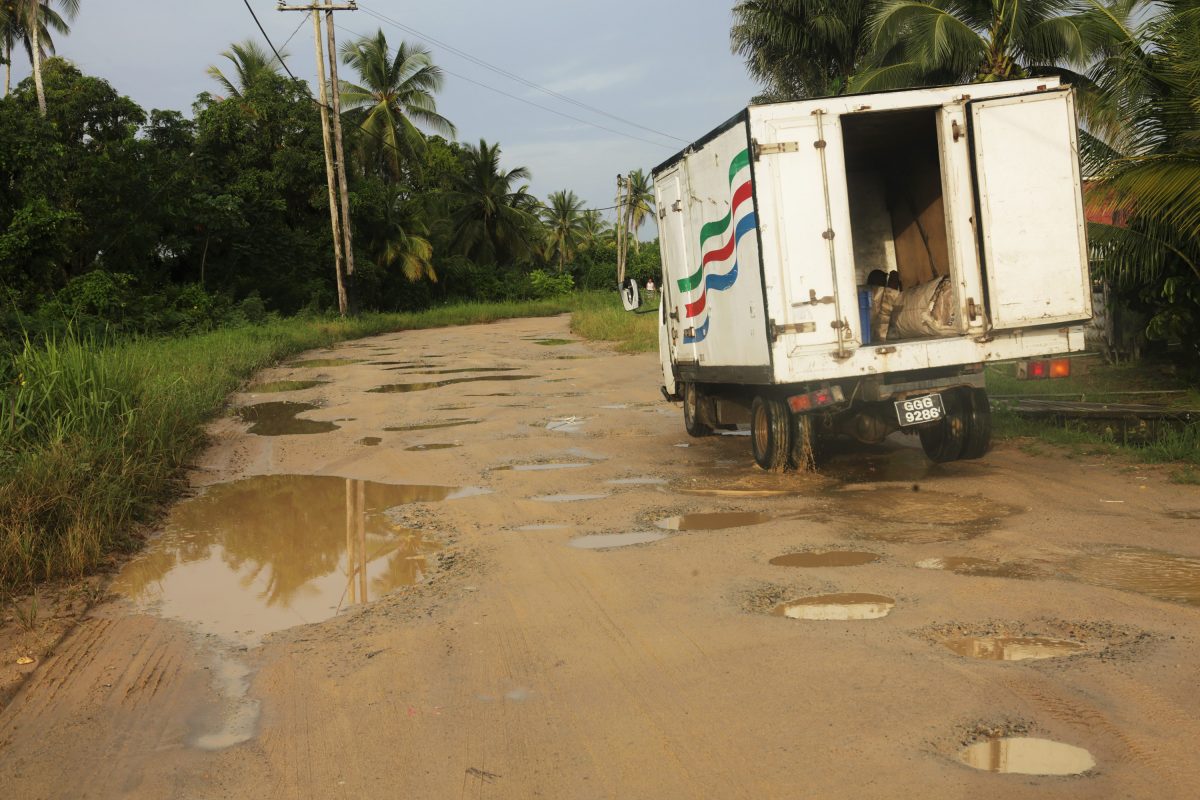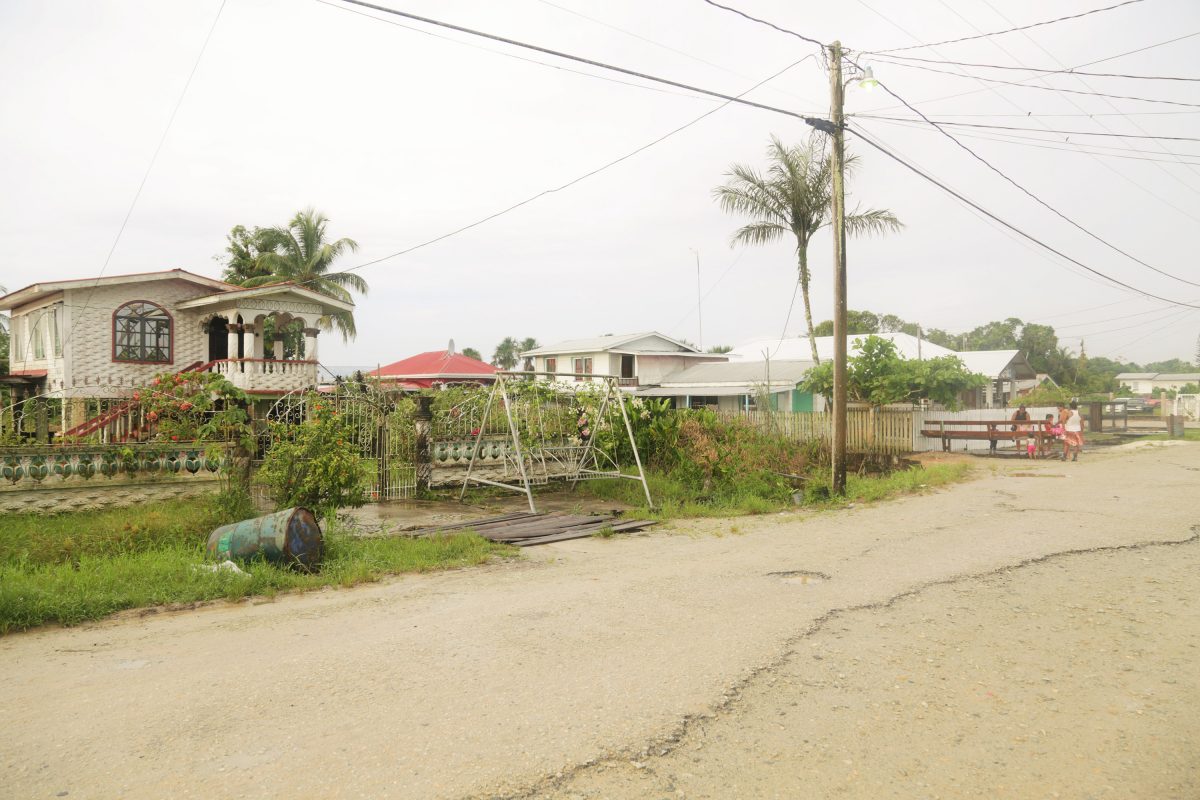Present Hope, East Bank Essequibo, bordered by Saint Lawrence and Lookabu, is a haven to the more than 100 people who call it home. Many of them farm, while others are employed at sawmills in the nearby villages or are self-employed.
To get to Present Hope, one takes a bus or car at the Parika junction at a cost of $200 a person or uses a taxi costing $1,500. The distance is not that great, but the sad condition of the road makes the trip to the village a half an hour ride.
At one house two young men were packing bananas into a truck, which they said would leave for the market the following day at two in the morning. Next door, Rambhajan’s (only name) son was under the house sorting out citrus from their farm that would be taken to the market the following day also.
“This place was bought by my grandfather, my mother’s father, who came from India. He purchased this part of the estate for $37, which is 750 rods in length. The trench that runs at the side here, I think, was dug by the slaves and there’s was a creek we called Old Creek, where water run through from but now it block up,” the man said.
“My mother said when she was a girl, some Amerindian people used to come here, they were mostly naked. The adults had their private parts covered but the boys and the girls were naked. They used to bring out fish that they used to barter with her parents and the other people living here at the time for rice and whatever else they needed. They used to bring labba and other wild meat.”
He shared that many of the canals around were put in during the Cheddi Jagan administration.
As a boy, Rambhajan, also known as Dave, lived at Anna Catherina. His family was not rich, but they lived fairly above the poverty line. Food was always in abundance. His father was at one time employed at the Leonora Sugar Estate, but during the 80-day strike in 1963, because he feared for his safety and that of his family, they relocated to Present Hope.
Back in the era when the trains were still operating, they served as the main mode of transportation. Dave recalled that when it was announced that the trains would be making their last journeys, he felt he could not miss such an opportunity and spent the day riding from Parika to Vreed-en-Hoop and back. “They weren’t like the trains you see now. They were made of zinc sheets and had wooden seats and the engine was worked by coals and diesel and it was very noisy. I’ve been abroad and ride the fancy trains. Nobody was upset by this. We were looking for more modern transportation,” he said.
Huge wooden buses took over transporting passengers. The buses were said to have been owned by a family living in Canal Number One.
Asked whether he was sad about moving to Present Hope, Dave said that in fact he was excited about the idea of attending a new school and making new friends. He attended St Lawrence Primary School in the neighbouring village, just a two-minute walk from his home.
However, if they needed to travel to Parika, there was just one car plying the route; the driver was called Doobay. If they missed Doobay, they had to resort to trekking in or out of Present Hope. The walk, one way, took approximately one hour.
Dave recalled his wife walking this road while she was pregnant. Many times, she and a group of pregnant women walked out together heading to clinic in Parika; the same distance took them half an hour more. Some fetched bags on their heads, but this had become a routine for them, that it took not much of an effort. Today there are enough buses and cars to ferry everyone in and out of the village. Time is the only issue as after 4 pm, one cannot count on a bus heading into Present Hope; travellers usually walk to Hubu Koker, 10 minutes away, where it is easier to access public transportation.
As regards the road, Dave said it was fixed many times, but it was never done properly. There has been talk about work scheduled to be done on the road, but with elections around the corner, Dave does not believe that anything will be done anytime soon.
‘A quiet place’
Ganesh Phillips was behind his house doing a bit of construction while his wife looked on. He grew up in Present Hope and recalls walking the sandy road to St Lawrence Primary. “I remember carrying our books in plastic bags,” he said. “When you run out of plastic bag, you shove them in the back of your shirt, then tuck your shirt in your pants and you gone to school. After school we used to go to the Present Hope Playground to play.”
A farmer, Phillips plants cassava and cash crops and when he is not farming, he does a bit of carpentry. On Saturdays, he sells wholesale at the Salem Koker or at the Parika or Leonora markets. However, with the rainy season many of his plants have been damaged. The vegetables he managed to rescue, Phillips said, were heading to the market the next day at two in the morning.
“Living here, you don’t have to worry about your safety and it’s a quiet place. If you look, only one, one people have fence here and most of the people with fence really put them up to keep out animals,” he noted.
Two months ago, when Minister of Natural Resources Raphael Trotman visited the area, Phillips and other concerned residents brought to his attention some of the issues they are facing, and in particular the odour and heavy iron content of their potable water. Sometime ago, when residents first complained about this issue, they began receiving water from the pump station at Vergenoegen and while it seemed safer to drink, the pressure was very low, which led to them being connected to the pump station at Parika again. According to Phillips, he learnt from one of the engineers that the well at Parika was not drilled deep enough and any further drilling was prevented by a huge rock. It was said that a sawmill owner who had a well drilled in his yard villages away from Parika also faced the same problem; both wells are said to be over 100 feet deep. However, a woman in Present Hope who had a well drilled in her yard managed to go as deep as 300 ft and is said to be getting clear water. Phillips is not sure what else can be done to ensure that people in his area get cleaner water at a proper pressure.
Shopkeeper and farmer Herman King also grew up in Present Hope. In his days there were no nearby sawmills and almost everyone farmed. He plants cash crops and ground provision. Farming, King said, has always been part of his life, ever since his primary school days when he used to accompany his father to the backdam. Unable to afford secondary school after completing his primary education at St Lawrence Primary, King began working in the farms very early.
“I always like farming. I never thought about doing anything else. My father did it and my grandfather did it, so I expected to do it too. You see, working with yourself is good because nobody ain’t bossing you around. You go when you want, you come when you like,” he explained.
While King planned on going to sell at the Leonora Market the following day, he was not going to cut his sleep short to leave at 2 am. The man explained that those who left so early had no other choice if they wanted a good spot to sell. King has his own shop in the market and therefore does not have to leave as early. Instead he leaves at 4 am, to give himself enough time to stock his shop, which offers mainly liquor and snacks for sale. At one time, he also sold groceries, but stopped when mobile vendors began plying the village.
Speaking of infrastructure in Present Hope, King said the road was in dire need of fixing. Apart from that, he said, there was nothing else he needed as his community has everything.
